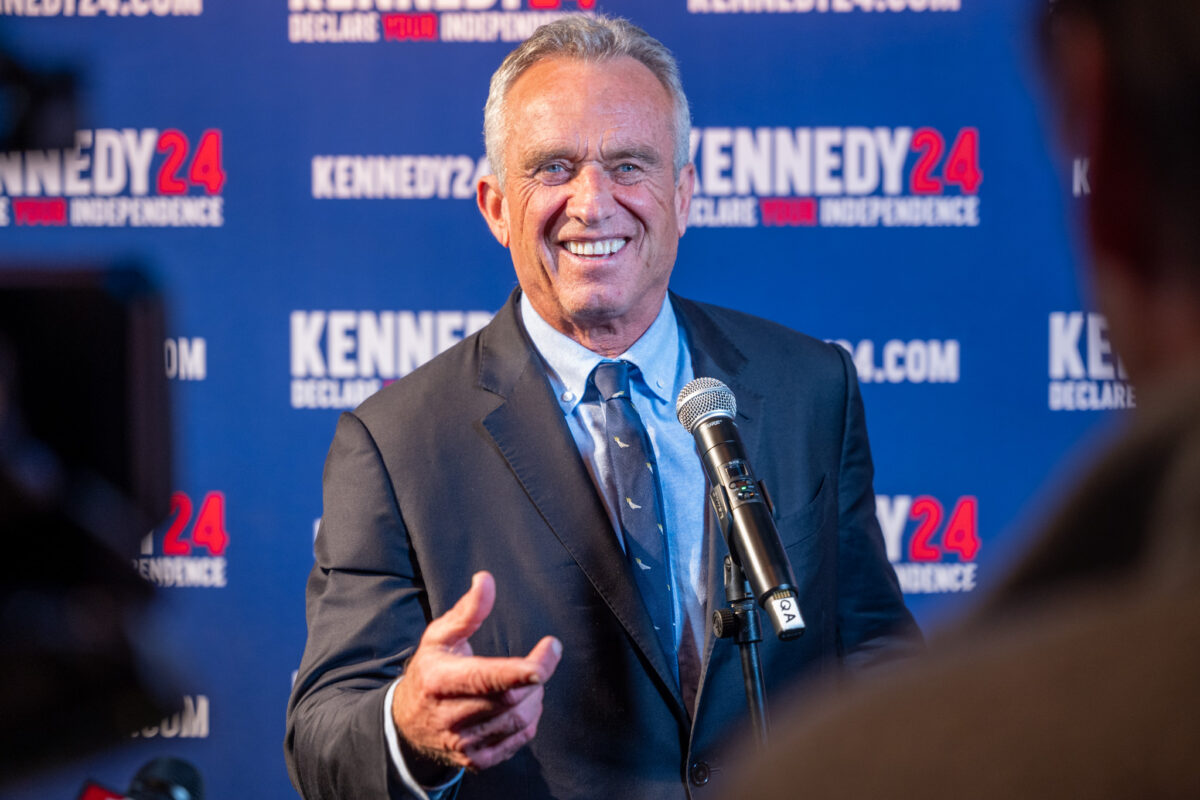Robert F. Kennedy Jr., running as an Independent presidential candidate, has submitted over 9,000 signatures to gain ballot access in Pennsylvania. His filing comes ahead of the August 1 deadline for the swing state.
The Kennedy campaign’s aggressive ballot access operation has not only surpassed the state’s requirement of 5,000 signatures but has also secured enough support to potentially withstand challenges from the major parties. This is no small accomplishment, as Pennsylvania, with its 19 electoral votes, is a key battleground state in the 2024 election.
Pennsylvania has a population of approximately 13 million, however the margins for elections are small. In 2016, Trump won by 44,292 votes, while in 2020, Biden secured victory by 81,660 votes. In 2016 when Jill Stein ran in Pennsylvania as the Green Party’s candidate she secured 49,941 votes which has worried the Democratic National Committee about independents ever since. Stein was kicked off the Pennsylvania ballot in the 2020 for not following procedures.
Kennedy’s campaign is well-funded, with over $15 million raised for its ballot access efforts. This financial backing has enabled the campaign to collect signatures for ballot access in 23 states, totaling 323 electoral votes, which accounts for 60% of the 538 total electoral votes nationwide. The Kennedy-Shanahan ticket is officially on the ballot in eight states, including California, Michigan, and Utah, and has collected enough signatures for ballot access in 15 additional states, such as Florida, New York, and Ohio.
Kennedy, an environmental lawyer and radical healthcare reform activist, switched to an independent campaign after initially challenging Biden in the Democratic primary. His campaign strategy focuses on securing state-by-state ballot access, a complex process requiring millions of verified signatures.
Legal challenges to Kennedy’s petitions in Pennsylvania must be filed by August 8. Both Democrats and Republicans are closely monitoring his efforts.
Beyond ballot access, Kennedy faces an uphill battle. He has been excluded from CNN’s presidential debate on June 27. He claims the move was illegal and filed a complaint with the FEC about the decision. As with any election, the future is uncertain, but what is clear is that candidates are looking towards the courts for strategic advantages this election year.

